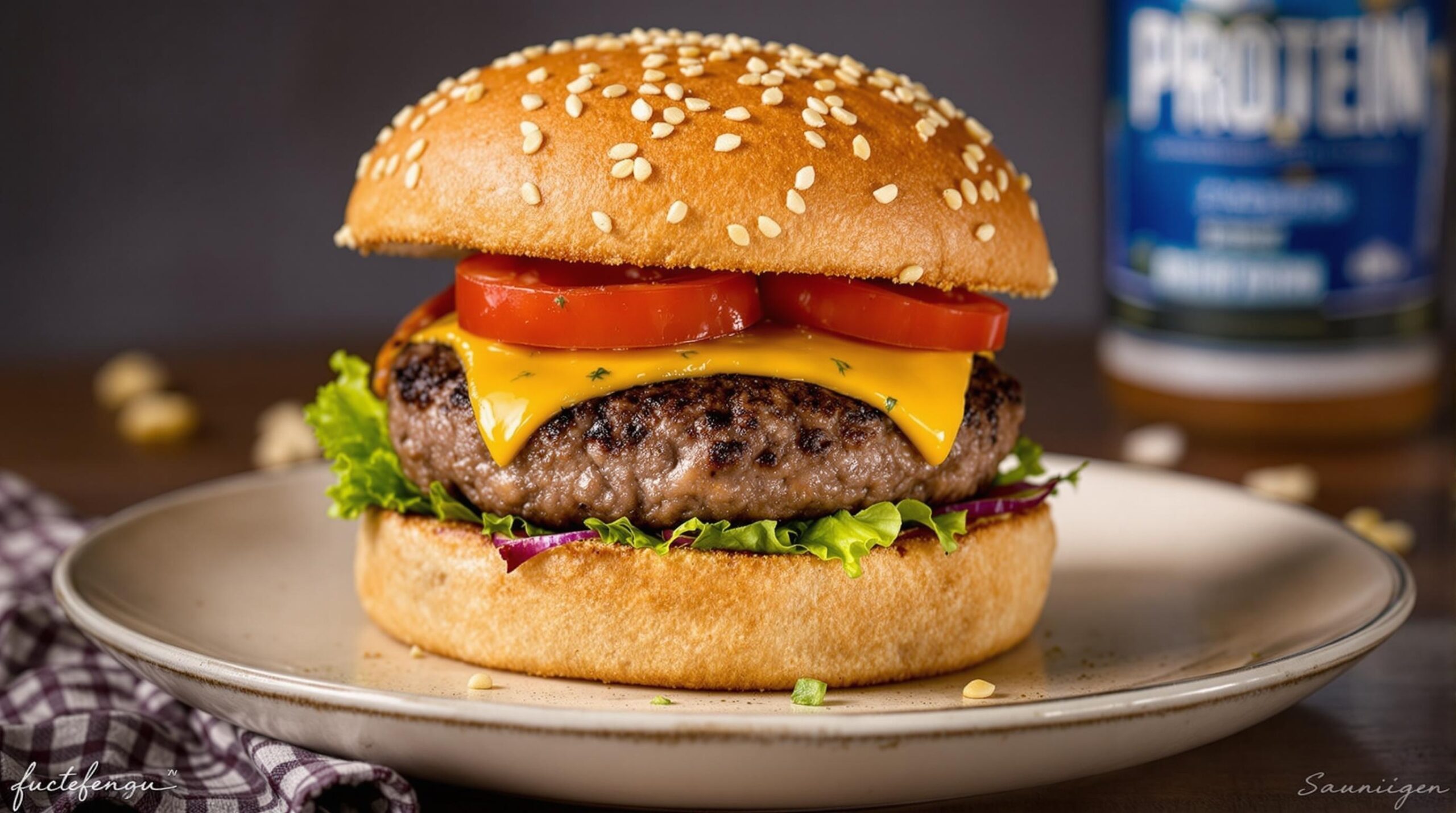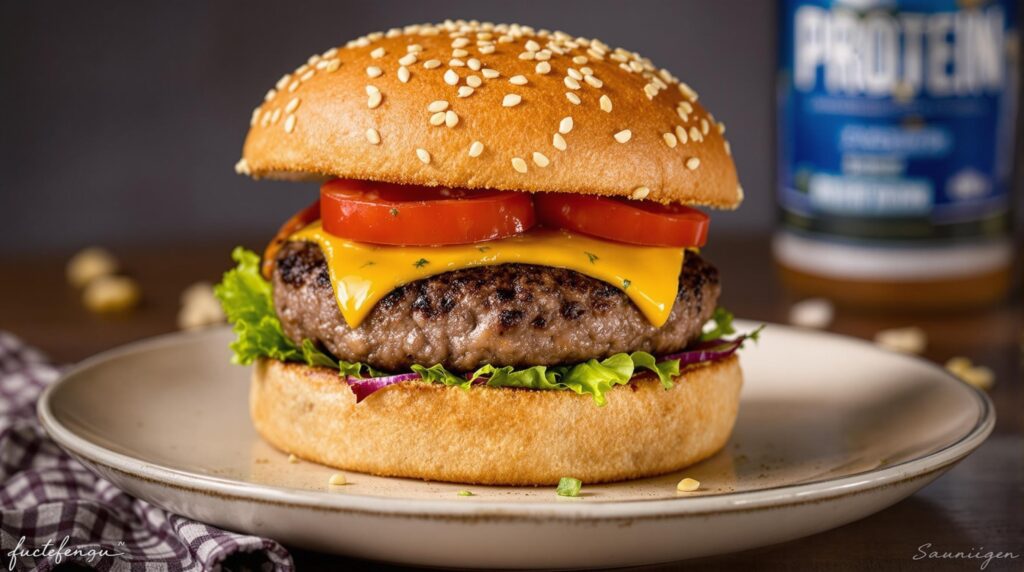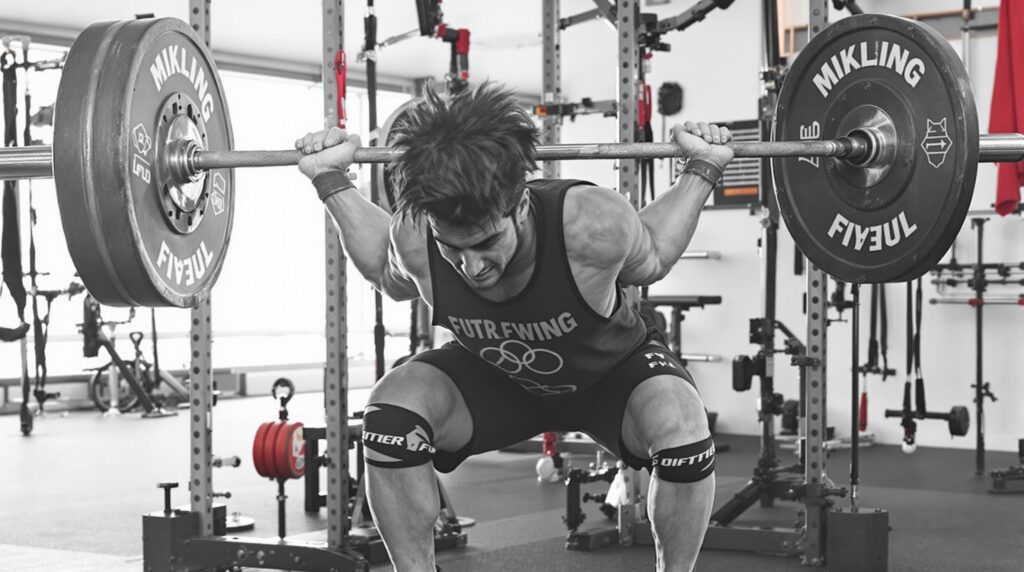The ultimate carnivore burger represents a perfect fusion of ancestral nutrition and modern fitness science, delivering exceptional protein quality for muscle growth and recovery. This powerhouse meal combines traditional beef with organ meats to create a nutrient-dense option that supports athletic performance without the insulin spike of carbohydrates.
Key Takeaways
- A properly formulated carnivore burger provides 28g of complete protein per 4oz serving, supporting optimal muscle protein synthesis
- Adding organ meats creates an ancestral blend that dramatically increases micronutrient density, particularly B12, selenium, and vitamin A
- Cooking temperature matters – 135°F internal temperature preserves heat-sensitive nutrients while ensuring food safety
- Spreading protein intake across multiple meals optimizes muscle building potential for bodybuilders and strength athletes
- The zero-carb profile makes it ideal for fat adaptation and metabolic flexibility during different training phases
Protein Powerhouse: Why Beef Reigns Supreme for Muscle Building
When it comes to building muscle, not all protein sources are created equal. A 4oz (113g) serving of beef delivers approximately 28g of protein, covering 34% of your daily protein requirements. This makes the carnivore burger an exceptional choice for athletes seeking quality nutrition.
The protein bioavailability of beef sits at an impressive 80 on the scale, significantly higher than plant proteins like soy (59), though slightly lower than whey isolate (104). This means your body can utilize more of the protein from beef compared to plant-based alternatives.
For perspective on protein density, you’d need to consume 14 slices of bacon or 4oz of cheddar cheese to match the protein content in a single beef patty. Plus, beef provides a complete essential amino acid profile, unlike many incomplete plant proteins.

The Ancestral Blend: Supercharging Your Burger with Organ Meats
To transform a standard burger into a nutritional powerhouse, I recommend creating an ancestral blend with this formula: 80% ground chuck, 10% beef liver, and 10% kidney. This combination dramatically elevates the micronutrient profile while maintaining the familiar texture and taste of a traditional burger.
The nutritional differences between a standard burger and this enhanced version are remarkable:
- Vitamin A: 2% DV in standard burger vs. 1,048% DV in ancestral blend
- Copper: 6% DV vs. 1,588% DV
- Folate: 2% DV vs. 10% DV
Beef liver adds an incredible 2,715% DV of vitamin B12, crucial for red blood cell production during endurance training. Meanwhile, kidney contributes 1,588% DV of selenium, which supports thyroid function and metabolic rate – key factors for body composition management. The ground chuck component maintains texture while adding connective tissue glycine, supporting joint health for high-intensity training programs.
Complete Nutritional Profile: Micronutrients for Athletic Performance
Beyond protein, the carnivore burger delivers a comprehensive spectrum of essential nutrients for optimal physical performance. With zero carbohydrates, it fits perfectly into low-carb and strict carnivore diet protocols.
Each 4oz serving provides approximately 20g of fat, with 5.9g of saturated fat and 2.1g of monounsaturated fat, supporting hormone production – including testosterone, which is vital for muscle development and recovery.
The mineral content makes this meal particularly valuable for athletes. Iron (10% DV) supports oxygen transport to working muscles, while zinc (32% DV) and selenium (25% DV) bolster antioxidant defenses during high-intensity workouts. The heme iron in beef has a superior absorption rate of 23%, compared to the 3-8% absorption rate of plant iron sources.
Regular consumption of this nutrient-dense food can help maintain optimal ferritin levels, particularly important for athletes who train at high intensities and volumes.
The Perfect Cooking Method: Maximizing Nutrient Retention
Cooking technique plays a crucial role in preserving the nutritional integrity of your carnivore burger. For optimal results, aim for an internal temperature of 135°F, which ensures food safety while protecting heat-sensitive nutrients.
After cooking, allow the burger to rest for 5 minutes. This simple step reduces juice loss by 23% through collagen reabsorption, keeping your burger moist and nutrient-rich. The carryover cooking effect means your burger’s internal temperature will continue to rise slightly during rest – removing it at 135°F will allow it to reach about 140°F during the rest period.
Cast iron searing creates a flavorful Maillard reaction crust containing glutathione precursors beneficial for recovery. However, avoid cooking to well-done (160°F) as this destroys up to 40% of thiamin and other valuable nutrients.
Step-by-Step Premium Preparation Protocol
Creating the ultimate carnivore burger requires attention to detail. Here’s how to craft this performance-enhancing meal:
- Select high-quality 80/20 ground beef, preferably grass-fed for optimal nutrient profile
- If creating an ancestral blend, hand-mix 1lb ground beef with 2oz of finely chopped liver and kidney
- Season with a carnivore-friendly blend like Carnivore Collective Texan Burger Seasoning, which contains garlic, cumin, and paprika without anti-caking agents that can hinder nutrient absorption
- Form into 1-inch thick patties – this thickness prevents overcooking the center
- Sear in beef tallow (which has a 400°F smoke point compared to olive oil’s 325°F) for 2 minutes per side
- Top with tallow-fried eggs for an additional 6g protein per egg plus choline for nerve function
The higher smoke point of tallow creates less harmful compounds during cooking while adding a rich flavor profile that complements the meat perfectly.
Carnivore Diet Integration: Building Your Meal Plan
To maximize muscle growth, fitness experts recommend a protein intake of 3.4g/kg for athletes, which translates to 272g of protein daily for an 80kg (176lb) person. The carnivore burger can serve as a cornerstone protein source in this dietary approach.
When following a carnivore diet, the first 72 hours typically involve glycogen depletion, after which your body upregulates fat adaptation mechanisms. This process makes the diet particularly effective during cutting phases when fat loss is the primary goal.
For a bulking protocol, consider this meal distribution:
- 6am: 2 carnivore burgers + 3 eggs (78g protein)
- 12pm: 12oz ribeye (72g protein)
- 6pm: 3 carnivore burgers (84g protein)
- 9pm: 1lb salmon (82g protein)
Spreading protein intake across 4 meals per day optimizes muscle protein synthesis. To balance methionine levels from high meat consumption, consider adding glycine-rich bone broth – one cup typically contains 3g of collagen, supporting joint health and recovery.
Research-Backed Performance Benefits
The science supporting high-protein, animal-based diets for performance continues to evolve. A 2024 trial from RMUHS found that athletes following a carnivore diet experienced a 9% power output increase compared to their baseline measurements.
A 2023 meta-analysis indicated that 2.4g/kg of protein daily is optimal for natural athletes, while enhanced athletes may benefit from higher intakes of 3.1g/kg. This research supports the high-protein approach of the carnivore burger diet.
Interestingly, case studies show a 14% reduction in Training Impulse (TRIMP) when adding 16g of pre-workout carbohydrates, suggesting that strategic carb cycling may be beneficial during competition phases even within a predominantly carnivore framework.
For optimal results, the research suggests spacing protein intake across 4 meals daily, with post-workout carnivore burger consumption being a particularly effective strategy for maximizing recovery and growth.
Sources
Eat This Much – Certified Angus Beef USDA Choice Ground Beef
American Foods Group – Ground Beef 80-20
RP Strength – Science of Bodybuilding Coaching



